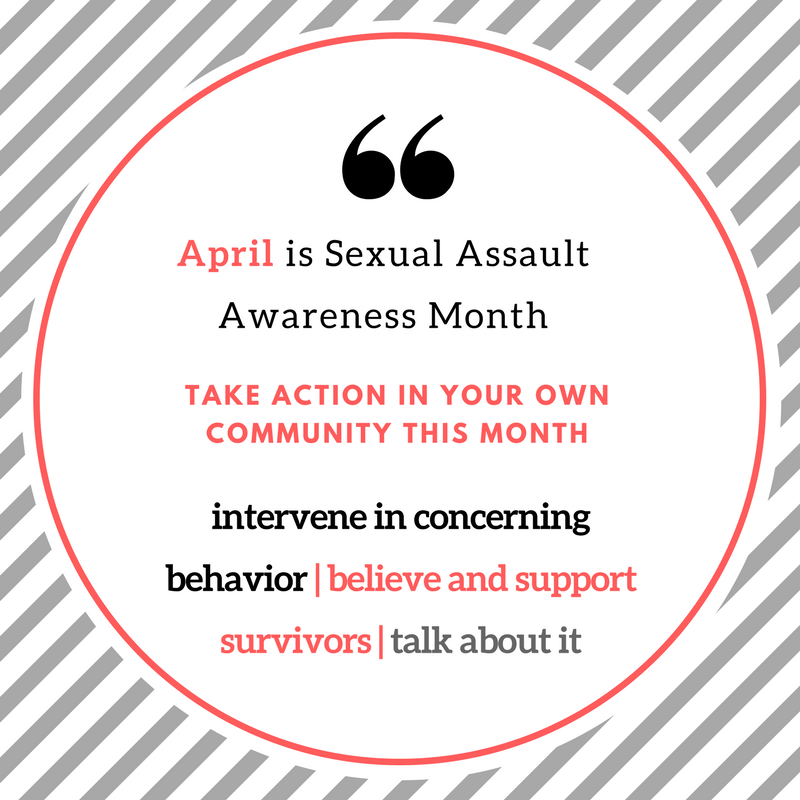
Sexual Assault Awareness Month
April is Sexual Assault Awareness Month, and in recent months, the public has become more aware of the extent of this problem. The statistics of sexual assault are harrowing; the #metoo movement has done a lot to present this problem to the public. There has been a history of women making claims that are followed by public disbelief or men not receiving punishment for their misdemeanors. It is important that as society we move towards educating ourselves about the frequency of sexual assault and making improvements for the treatment of survivors.
It is important to understand the damaging effects that sexual assault can have on a survivor. An individual who goes through the experience of sexual assault is at a higher risk for mental health disorders like depression, anxiety, PTSD, eating disorders, and substance use disorders. However, there are some things that we can do both as a society and as individuals to bring support and prevention to the forefront of this conversation. There has been some debate about how the increased awareness of sexual assault will affect women in the future. We can make a difference as individuals by using our actions to prove the positive nature of our awareness. Here are some things that we can do as individuals to help support men and women who have experience sexual assault and prevent it from happening in the future:
1. Intervene if you see a situation involving concerning behavior. This action by itself might seem simple, but so many times are such behaviors ignored due to the bystander effect. Do not let yourself become a bystander, when you can save someone from a traumatic event that can destroy their life.
2. Say something if you hear a joke that is overtly offensive or harmful in how it depicts a situation or a group.
3. Believe and support survivors. There has been a problem in the past, as well as in the present, where women who speak out about their experiences may not be believed. This is an important stigma that we must combat together. Statistics show that only 2-8% of sexual assaults are falsely reported, which is the same percentage in the report of other felonies.
4. Talk to someone about it. A friend or family member, someone you work with. Whether you are a victim who is seeking help or someone who wants to bring more awareness and clarity to the issue, talking to someone is a great way to broaden your perspective on the issue and raise awareness among your peers.
5. Do something within your community, workplace, or among your friends/family to raise awareness. Create or attend an event for awareness or donate to a charity that is supporting survivors.
A lot of these suggestions could apply to supporting any cause, but it is always important to stand up, so that people know there is someone out there that supports them. If you or someone you know needs help or are concerned about someone’s mental health in any way, do not stay silent. It is important to get help so that you can start the healing process and pave your path towards a brighter future. Please feel free to contact the professional team at Lifeline Connections for help. You can visit Lifelineconnection.org or call 360.397.8246 for more information.
